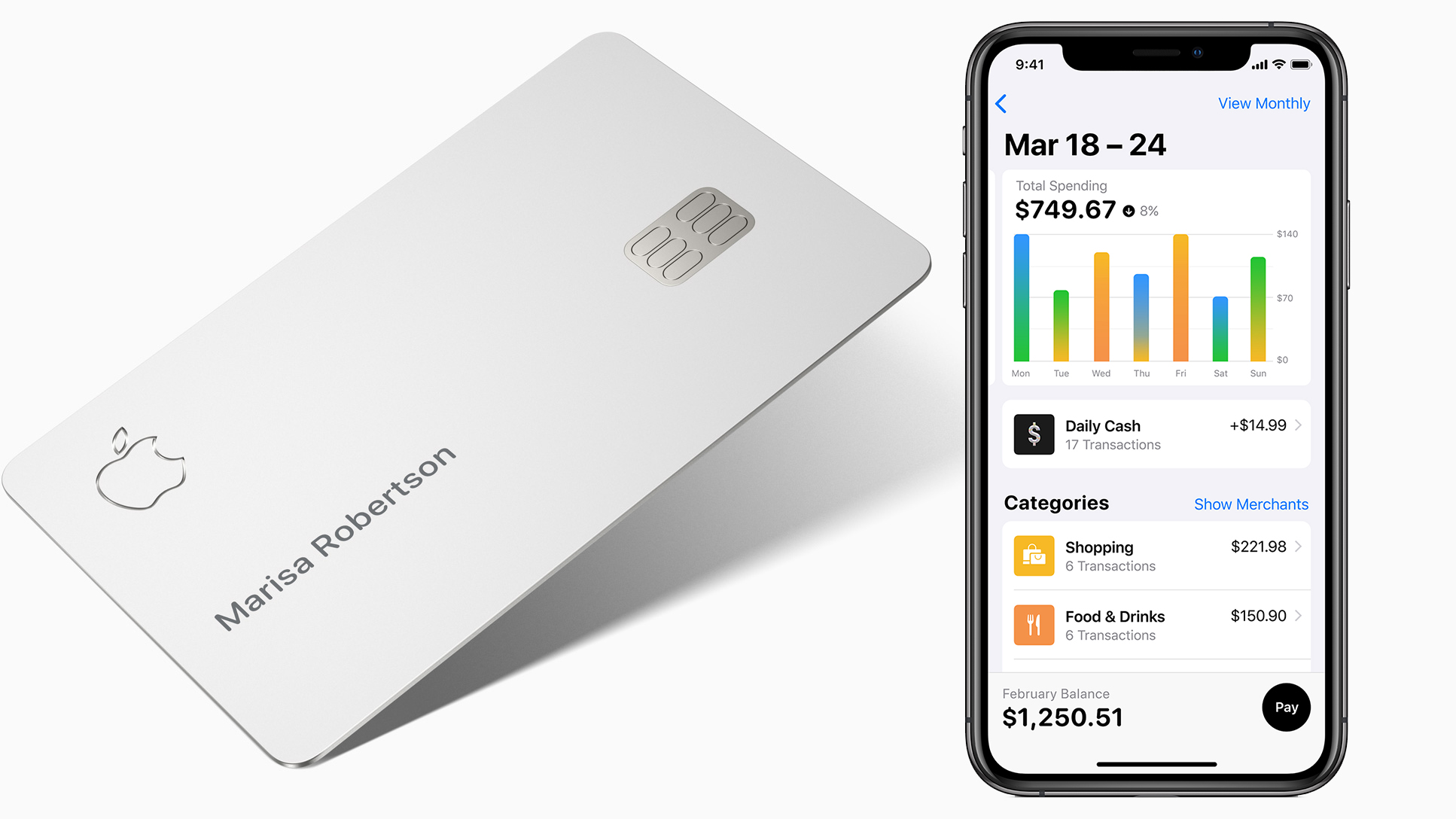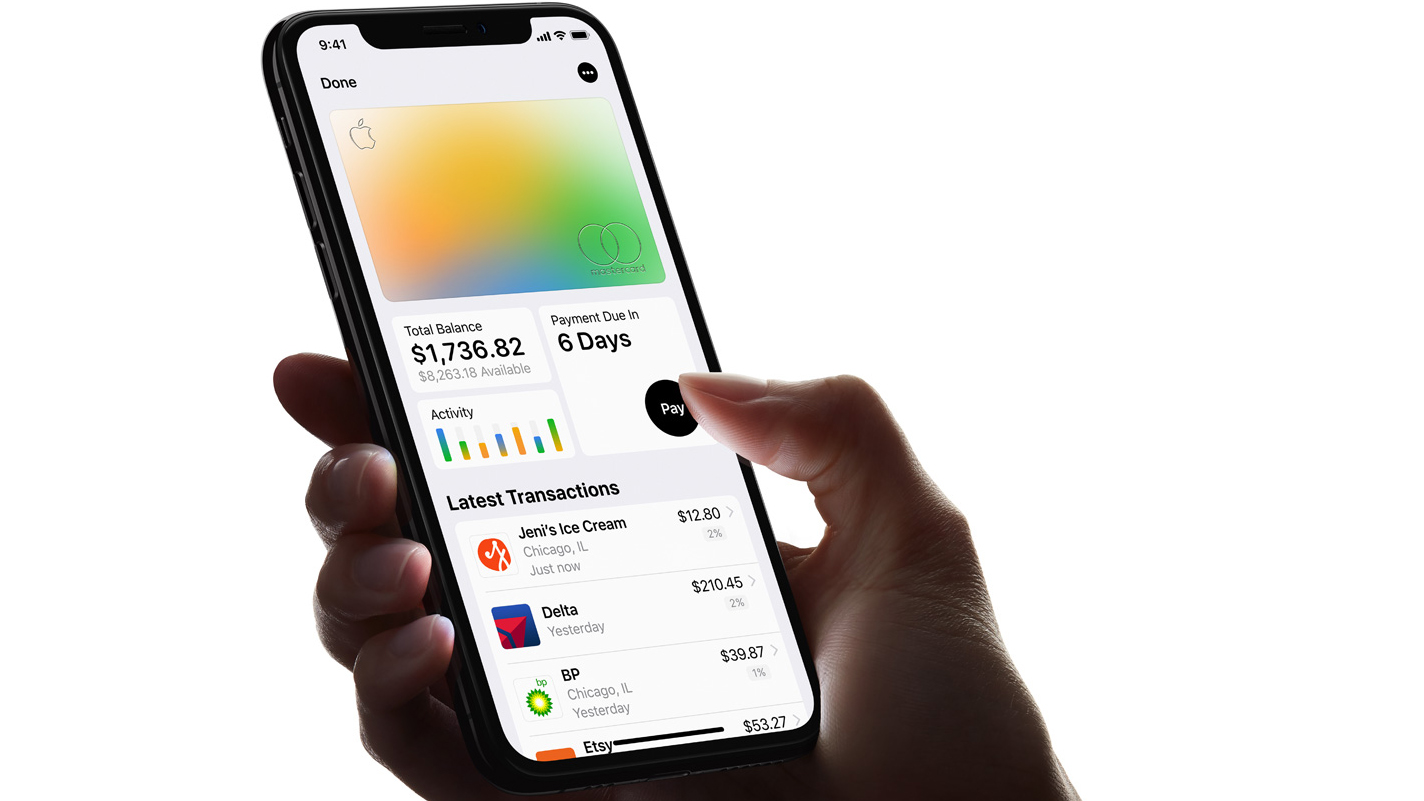3 reasons why I'm sold on the Apple Card to replace my 'dumb' credit card
The Apple Card makes my existing credit card seem dumb

Sign up for breaking news, reviews, opinion, top tech deals, and more.
You are now subscribed
Your newsletter sign-up was successful
Apple says it's rethinking credit cards with its forthcoming Apple Card, and it touts a bunch of consumer-friendly features I don't get from my current bank.
That's enough to get me to rethink my credit card allegiances. The promise of privacy and empowerment over our finances sounds like a fresh take on banking. I'm ready for a smart credit card in 2019.
Yes, there's a bit of vertical domination to it. Apple would be part of my transactions, from start to finish, from my building credit to buy the iPhone 11, to storing all of my data via iCloud, to trading the phone in for store credit toward the 2020 iPhone.
But, of all of the products Apple announced at its March 25 event – Apple TV Plus, Apple News Plus, and Apple Arcade – the Apple Card was the surprise highlight that has the potential to be industry-changing and, for some, life-changing.
Here are the privacy reasons why the Apple Card, launching in the middle of this year, has a future in my physical wallet and Wallet app.
1. Privacy pledge in a data-hungry world
No surprise, Apple is promising to keep your credit card transaction data private and financial information secure. Privacy has become Apple's mantra.

What may surprise you is how many credit card companies sell your personal data and how truly limited you are to opt out. When you can opt out, it's often difficult to do, buried in a super-sub-menu or requires calling a obscured phone number.
Sign up for breaking news, reviews, opinion, top tech deals, and more.
Apple declares, right on its site in big, playful text, "Even Apple doesn’t know what you bought. Or where. Or how much you paid," and says of issuing banking partner Goldman Sachs, "they will never share or sell your data to third parties for marketing or advertising." So far, so good.
2. That titanium Apple Card – with no numbers
This is brilliant. There are no numbers printed on the Apple-designed titanium card. Its laser-etched with your name, and the Apple and the MasterCard logos. That's it.

Contrast that with my current credit card, with worn, but still visible numbers. In the US, your credit card numbers are fairly exposed. They sit there on a table as you wait for your card and bill to be collected at a restaurant or bar, and then a server takes them to the back to run the transaction at a terminal. If you credit card gets stolen, the thief has access to your numbers for much longer, the same is true even with cashback credit cards.
This sort of credit card theft is rare, but it's happened to me – and it's a headache to deal with. Any time your card is out of sight, you're at risk. Apple keeps the numbers locked to the Wallet app in your iPhone.
3. Colorful, ad-free spending summaries
My credit card company has basic categorized spend tracking three menus deep and it's not very good, so I've used personal financial management service Mint.com... only to be inundated with ads trying to sell me stuff. It's colorful and fully detailed, sure, but I have to log into Mint, separate from my credit card account, and dodge unsolicited offers at every turn. I've used Mint alternatives, but nothing has impressed me.

Apple Card uses simple weekly and monthly summaries right inside the Wallet app. It's colorful looking, yet devoid of the ads I'm used to seeing. Categories are broken down by color, and those are reflected in the trend bars when you look over your spending history.
Simple and colorful, it looks like the Apple Activity app, but for exercising my financial muscle. Best of all, no one's trying to sell me stuff based on my financial details.
Other intriguing Apple Card ideas
- Daily Cash: I like this idea of up to 3% back on Apple purchases (from the Apple Store and also the App Store and iTunes), 2% back on all Apple Pay transactions, and 1% on everything else – and it goes right in my Apple Cash account so I can spend it daily. There are other cards with as much as 5% cash back at their stores (Amazon is one), but it all depends on how much you shop at specific stores vs use Apple Pay.
- Interest calculator: This is something I could have used when I was younger. It spells out how much interest you'd pay if you can't pay everything on your card. It's way more upfront with this information than I've experienced with other credit cards.
- Payments due on the last day of the month: It's not set for random a date you always forget, and the Wallet app has a payments daily countdown to your next bill. There are also push notifications. I feel like the credit card companies I've used in the past didn't want me know this information.
- No international or annual fees: My current credit card dings me every time I make a transaction during MWC in Barcelona or when I'm on any other international trip. The rival card I wanted to switch to (before today) doesn't have this, but does have an annual fee. The Apple Card doesn't have fees – except for interest fees (higher than the average, but okay with me, as I make payments on time).
- Apple Maps location data: This tracks down where your Point of Sale happened. No more having to Google why you made a transaction at POS 10138604. The days of sleuthing my way through making sense of my my credit card statement are over.

Financial companies, I've learned, are not tech companies. Their web and app-based payment and tracking methods are often outdated and confusing (sometimes, it seems to be on purpose).
And sure, Apple is technology company, not a financial company, but after plenty of experience with deceptively marketed credit cards, I'm willing to take a chance on something new to disrupt payments and my privacy. If it proves popular, the Apple Card could push the industry to be more responsible.
